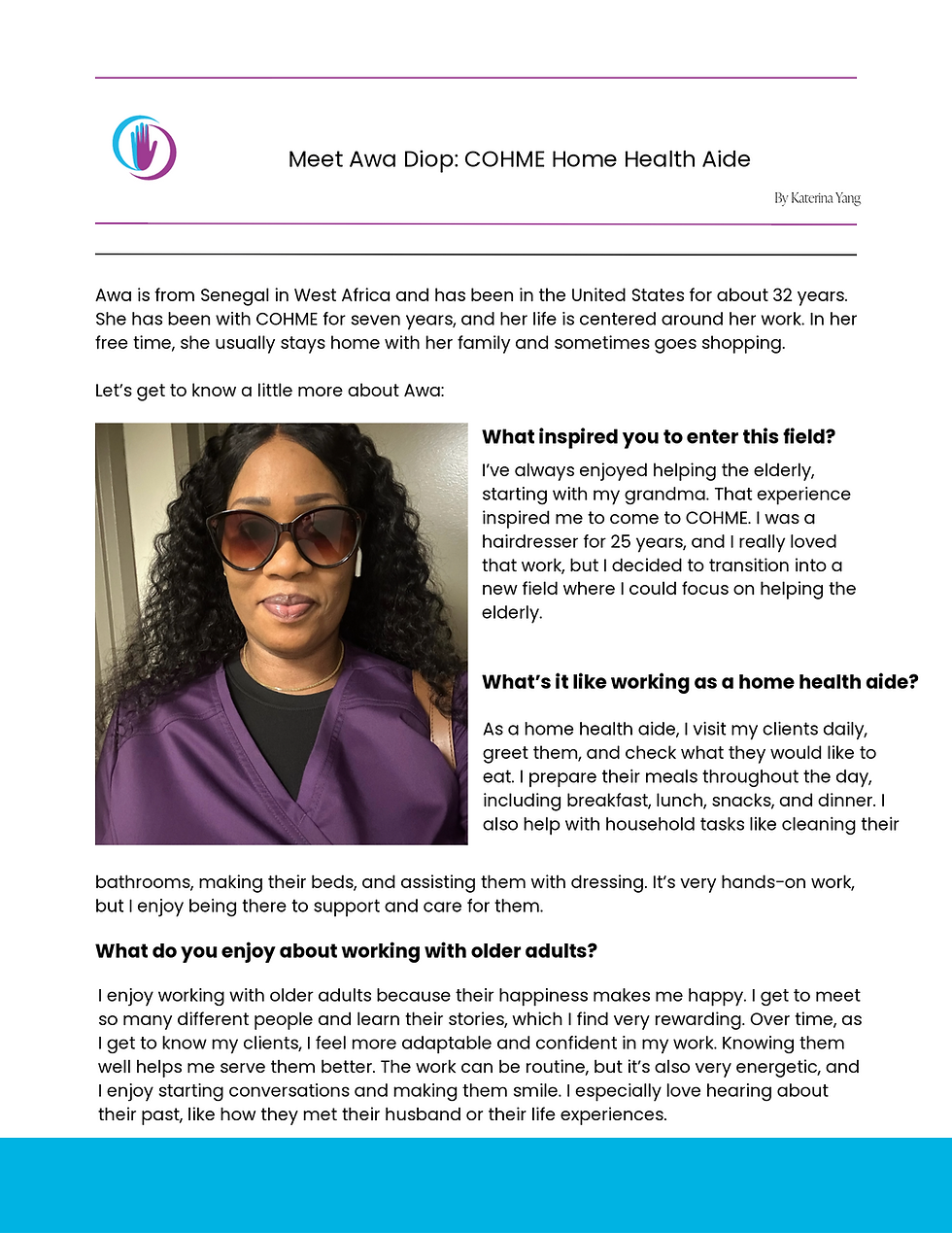5 Reasons Why Specialized Home Health Aides Are Essential for Dementia and Alzheimer's Care
- Sep 6, 2023
- 3 min read
Updated: Oct 8, 2025
By Elyse Notarianni

Caring for a loved one who is experiencing cognitive decline due to conditions like dementia or Alzheimer's can be a deeply emotional and challenging endeavor. These conditions not only affect memory but can also impact behavioral patterns, emotional well-being, and even basic physical abilities. Entrusting the care of your loved one to a generalist home health aide may not suffice.
It is crucial to engage the services of a specialized home health aide trained in dementia and Alzheimer's care to ensure the well-being and safety of your loved one.
Specific Care Requirements
People suffering from cognitive impairments often have specialized needs that can be best addressed by a trained professional. For example, an individual with Alzheimer's may forget they've already eaten and continue to ask for food. This can result in overeating and lead to obesity or other health problems if not properly monitored. Specialized aides know to redirect such behavior effectively and gently, something a generic caregiver might not be trained to handle.
Dietary Considerations
One of the most overlooked aspects of caring for someone with cognitive decline is dietary needs. A generalist might not be aware that foods with bones can be a choking hazard for someone with dementia or Alzheimer’s, who might forget to chew thoroughly or swallow impulsively. Moreover, cognitive decline can impair one's ability to chew and swallow. Thus, specialized aides often opt for softer, easy-to-chew foods to minimize the risk of choking or aspirating. They might choose to offer mashed potatoes instead of a steak or a smoothie instead of whole fruits.
Behavioral Management
Patients with cognitive impairments often display unpredictable behaviors, sometimes manifesting as agitation, aggression, or disorientation. A caregiver without specialized training may not know how to de-escalate such situations effectively. In contrast, a trained aide will possess the necessary skills to manage these episodes, employing distraction techniques or soothing activities to defuse tension.
Safety Concerns
Specialized training also equips caregivers to anticipate and prevent potential safety hazards. For example, Alzheimer’s patients often experience “sundowning,” a phenomenon where their confusion and agitation worsen in the late afternoon or early evening. An inexperienced caregiver might not recognize the signs of this and may not take the necessary precautions to ensure the patient’s safety during this time, such as avoiding activities that could be overstimulating or stressful.
Medication Management
Medication management can become a complex task for those with cognitive impairments. They may forget to take their medication or mistakenly take more than the prescribed dose. A specialized caregiver knows to set up reminders and to keep all medications securely locked up, only dispensing the required dosage at the correct times.
Why does this matter?
While it may be tempting to enlist the help of a generic home health aide, the complex and ever-changing needs of a person with dementia or Alzheimer’s make specialized care non-negotiable. From dietary restrictions to behavioral management and medication supervision, specialized training enables a caregiver to provide holistic, comprehensive care tailored to your loved one’s unique needs. Investing in a home health aide with this specialized training is not just a choice but a necessity for the optimal care of your loved one.
COHME has extensive experience in managing Alzheimer’s disease and related dementia disorders. It is just these types of challenging conditions that require our unique combination of professional, comprehensive case management services.



